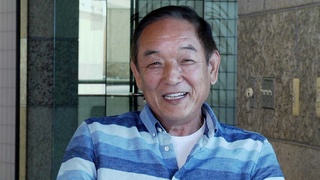Entrevistas
George & Brad's Wedding
The fact that Brad and I could get married is a product of our democracy. A result of the discussions, the debates, the struggles that preceded it. In California in 2008, we got marriage equality. It was a very important event.
And since we were involved with the museum, contributing to its success and its expansion and building of the Democracy Forum, we wanted to get married in the forum of democracy. We didn't have the Tateuchi support yet at that time, so it was called at that time simply the Democracy Forum. Today it's called the Tateuchi Democracy Forum. So we decided to get married there.
But we also wanted to have a celebratory part of that wedding, so we decided to have the dinner and celebration in the Aratani Hall. A great, huge hall with plenty of space to have all our friends and relatives join in the celebration. And we also wanted to have a theme of diversity because Brad and I are diverse. He's of Scottish, English, German ancestry, and I'm Japanese American ancestry. So we wanted it to be reflected in our wedding.
So we had a koto player welcoming people as they filtered into the Democracy Forum. We had a Filipino piano player, a wonderfully gifted guy, who played the music at our wedding. Our wedding march was One Singular Sensation, from the Broadway musical Chorus Line. And when the wedding ended, we had Scottish bagpiper lead our friends and relatives from the Democracy Forum across the plaza to Aratani Hall. And we had the Gay Men's Choir singing from the choir loft up above. It's never been used. We thought that would be a wonderful place to have group singing from there. And so I think we were the first ones to use that space perched way up there for that kind of purpose.
We knew friends who were professional singers, people who appeared on Broadway, and so we had a wonderfully diverse group to celebrate our wedding, and in the Democracy Forum was the perfect place for us to tie the knot.
Data: February 3, 2015
Localização Geográfica: California, US
Entrevistado: John Esaki, Janice Tanaka
País: Watase Media Arts Center, Japanese American National Museum

